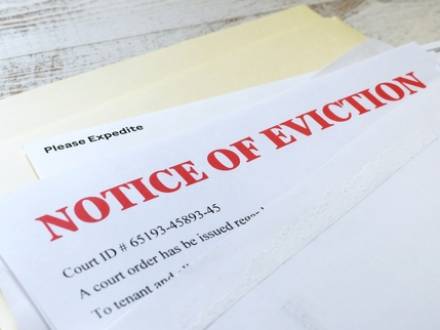How the Expansion of Crime-Free Housing Laws Affects Landlords
 Recently, a Senate committee advanced a measure that aims to limit the circumstances under which tenants can face eviction because of ordinances that fall under "crime-free housing." Across the state of Illinois, one hundred cities have crime-free housing laws that allow landlords to evict a family for a minor offense, even if the offense did not occur on the property.
Recently, a Senate committee advanced a measure that aims to limit the circumstances under which tenants can face eviction because of ordinances that fall under "crime-free housing." Across the state of Illinois, one hundred cities have crime-free housing laws that allow landlords to evict a family for a minor offense, even if the offense did not occur on the property.
Thanks to these ordinances, as many as one in four Illinois residents live in rental homes that require them to sign a lease with a caveat. The lease states that if anyone who lives in the rental is accused of a crime, regardless of how minor, and regardless of whether the crime is even prosecuted, the tenant and family members can be evicted.
Landlords have little choice in the matter; any municipality with crime-free housing ordinances is required to hire a housing coordinator who handles cases after law enforcement informs the landlord that a tenant must be evicted. The coordinator reviews the case to determine whether the tenant’s actions warrant eviction.
These laws could change if the Senate passes the measure to limit these evictions. Those trying to limit evictions believe crime-free ordinances have been used in the eviction of tenants who committed petty offenses or no crime at all. Landlords who are uncertain of how these laws apply to them should speak to a knowledgeable Naperville, IL landlord eviction lawyer.
What Would Senate Bill 2264 Do?
Senate Bill 2264 would put a halt to some of the policies that have come to light. The bill is in response to a New York Times and Illinois Answers Project investigation. The investigation turned up more than two thousand questionable cases across 25 cities, 500 of which involved actual evictions.
At least 1,300 of these so-called "violations" were the result of a non-criminal offense or a misdemeanor offense. Many of these violations were never even pursued by the state. In most actual eviction cases, city officials ordered landlords to evict tenants.
While landlords can seek an eviction under the crime-free ordinance, even when the city does not demand it, actual landlord evictions under the ordinance were found to be rare. Some cities have modified the program over the years in response to complaints from landlords and renters.
What Was the Original Goal of Crime-Free Housing Ordinances?
While the goal of crime-free housing ordinances, which began in the early 1990s, was to remove drug dealers, violent criminals, and tenants who seemed to spend their lives disturbing their neighbors, the ordinances are often abused. In fact, some cities have so aggressively enforced these ordinances that any contact a tenant has with law enforcement can result in the tenant receiving a violation and potentially being evicted.
In some cases, these "violations" included tenants who only called law enforcement to request assistance and found themselves being evicted from their homes. A law was passed in 2015 that prohibited the use of ordinances to evict domestic violence victims. Adding on to that law, SB 2264 would prevent cities from penalizing a tenant who was merely requesting assistance from the police.
How the Bill Would Help Families Facing Eviction
The bill would prohibit the eviction of a tenant who was not directly accused of a crime, rather than evicting an entire family because of one family member's misstep. Tenants evicted under the crime-free ordinances could challenge the eviction in circuit court, and each municipality would be forced to create a hearing process for those facing eviction. The bill requires approval from the full House and Senate before it is sent to the Governor for consideration.
Contact a DuPage County, IL Landlord Eviction Lawyer
If you are a landlord whose rentals are in a city with crime-free ordinances and you are uncertain about the legality of an eviction, it is wise to speak to a Naperville, IL landlord eviction attorney from Appelman Law LLC.
Attorney Appelman is committed to providing local landlords with the highest quality representation and handling evictions legally and as smoothly as possible. To schedule a free, complimentary consultation, call 630-717-7801.





